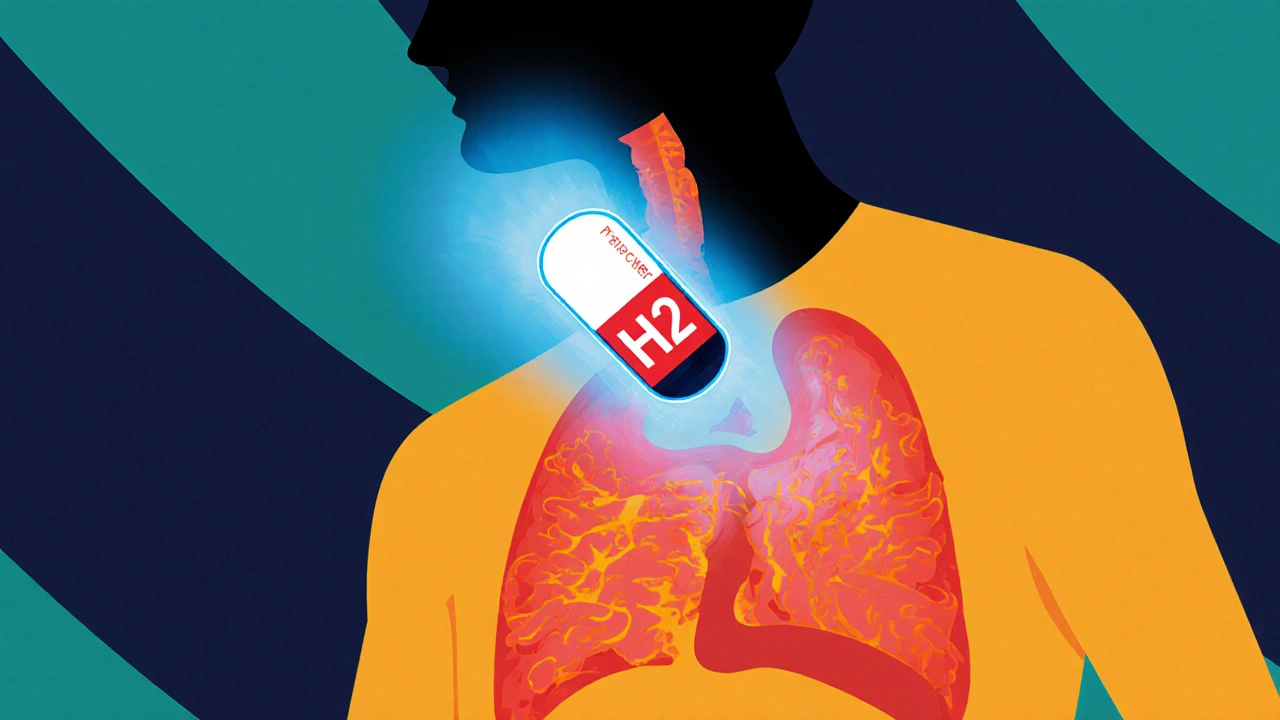H2 Blockers: What They Are, How They Work, and What Alternatives Exist
When your stomach makes too much acid, it can cause heartburn, ulcers, or GERD. That’s where H2 blockers, a class of medications that reduce stomach acid by blocking histamine receptors in the stomach lining. Also known as histamine H2 receptor antagonists, they work fast—often within an hour—and are taken before meals or at bedtime to keep acid under control. Unlike proton pump inhibitors (PPIs), which shut down acid production more completely, H2 blockers give you a steady, moderate drop in acid. That’s why they’re often used for mild to moderate symptoms or as a maintenance option after PPIs.
Common H2 blockers include ranitidine (Zantac), famotidine (Pepcid), cimetidine (Tagamet), and nizatidine (Axid). But here’s the thing: ranitidine was pulled from shelves in 2020 after tests found it contained a cancer-causing impurity. That left famotidine as the most trusted option still widely used today. Cimetidine, while effective, has more drug interactions—it can mess with how your liver processes other meds like blood thinners or antidepressants. So if you’re on multiple prescriptions, your doctor might skip cimetidine and go straight to famotidine.
People often ask: are H2 blockers better than PPIs? It depends. PPIs like omeprazole work longer and stronger, so they’re better for severe GERD or healing ulcers. But H2 blockers have fewer long-term risks. Studies show prolonged PPI use might link to lower vitamin B12, bone loss, or kidney issues. H2 blockers don’t carry those same concerns—at least not as clearly. That’s why many people use them for occasional heartburn or as a bridge between PPIs and lifestyle changes.
And let’s not forget the lifestyle side. H2 blockers help, but they’re not magic. If you’re still eating spicy food late at night, drinking coffee before bed, or lying down right after eating, no pill will fix that. The best results come when you pair H2 blockers with simple habits: eat smaller meals, avoid trigger foods, don’t lie down for two hours after eating, and keep weight in check.
What you’ll find in this collection are real comparisons between H2 blockers and other acid-reducing options, safety tips for using them with other meds, and insights into why some people switch from one to another. You’ll see how famotidine stacks up against omeprazole, what happens when you mix H2 blockers with alcohol, and why some older drugs like ranitidine vanished overnight. These aren’t generic articles—they’re based on real patient experiences, FDA updates, and clinical data you can actually use.
How H2 Blockers Treat Erosive Esophagitis
Discover how H2 blockers lower stomach acid, speed symptom relief, and help heal erosive esophagitis. Learn dosing, side‑effects, and when to pick them over PPIs.
